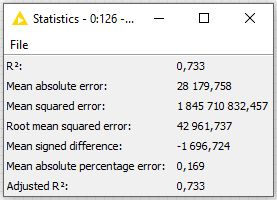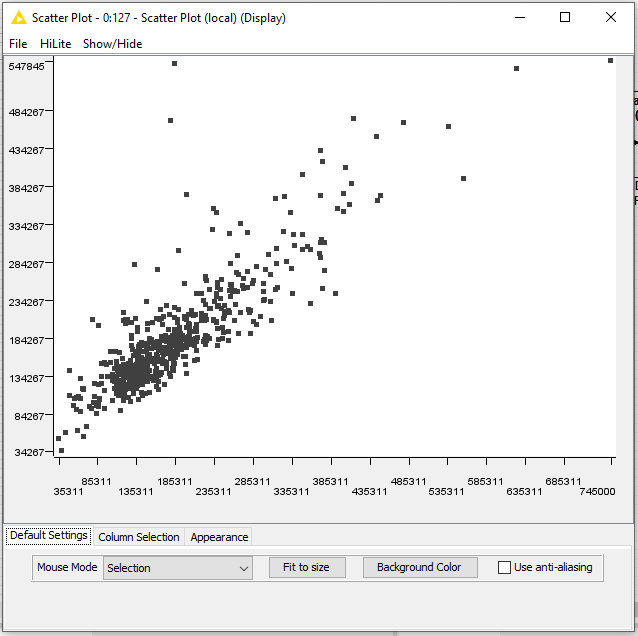Hello, I am doing a flow where I forecast the value of the house to use a network, it asks me to normalize the data, when I make the prediction, it gives me the normalized prediction as I return it to the real value, thanks.
Hi,
after the pediction you have to use the denormilizar as shown in the example.
Kind regards,
Paul
I can’t understand what you meant
in the example the denormalizer is not applied to the predictions.
Thanks Pablo
Sorry i can Just see the Screenshot because I’m in my Phone, but there it is connected to the predtictor…
Hi @Jalvear
Please find below a possible solution to your “RProp MLP Learner” node based workflow:
I have a few comments concerning this implementation based on the “RProp MLP Learner” node:
- The “RProp MLP Learner” node is quite limited and I would rather use the KNIME Keras nodes to implement Neural Networks. For instance, one cannot chose what input variables to inject to the MLP NN and the MLP NN output has to be normalized between 0 and 1. This is not the best choice to predict an unbounded double output variable.
- This somehow obliges to use the 0-1 min-max normalization rather than the Z-score (Gaussian) Normalization. This latter is a much better choice … just to mention a few drawbacks.
Nevertheless, I have completed your workflow and I’m providing here a possible solution:
The model regression performance is as follows:

Last comment, please be aware that the “Normalization Model” should be calculated only from the Training Set to avoid any data leakage from the training set to the test set. Using the whole data set to calculate a normalization before data partition leads to data leakage. Hence, this is what the uploaded workflow is doing.
Hope al this is clear enough and of help. Otherwise please reach out for further explanations.
Best
Ael
Hola @aworker thanks for such a complete answer and also for completing the workflow.
I reviewed it and it served me perfectly, how wonderful
It is my first time using neural networks, but your comments and contributions are very valuable, I appreciate your help and without a doubt it is motivation to continue learning.
thanks again.
a hug
Hola @Jalvear
Fue un placer ayudarte y no dudes en volver a preguntar si tienes mas preguntas.
Espero que tu tesis sea todo un exito!
Un abrazo,
Ael
This topic was automatically closed 7 days after the last reply. New replies are no longer allowed.

